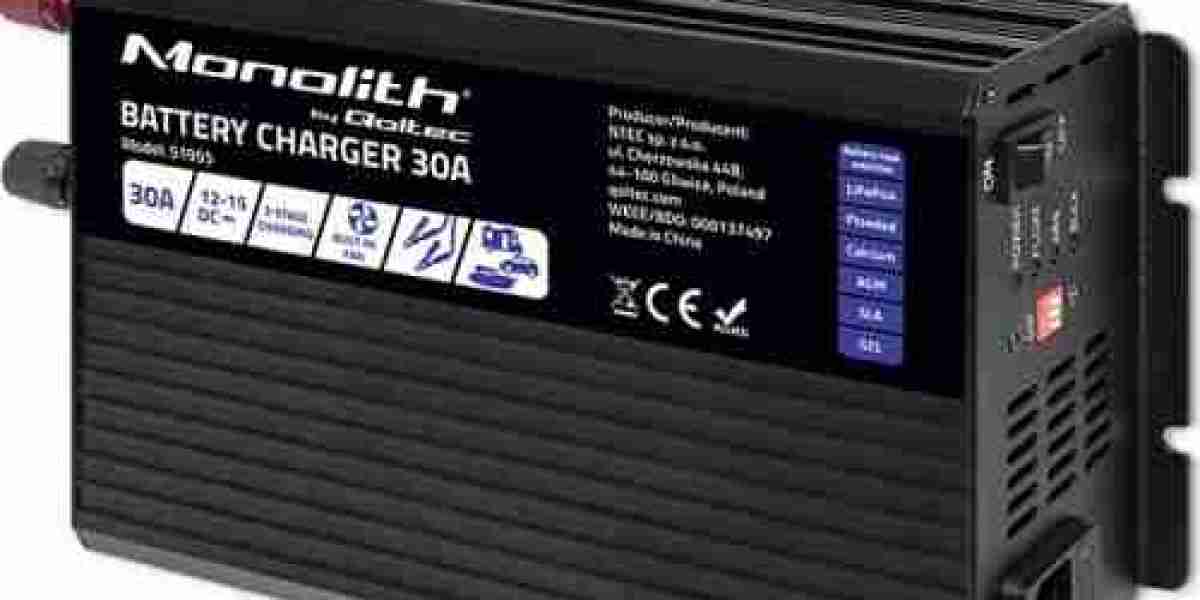As renewable energy systems and electric vehicles (EVs) become more popular, one of the most crucial components in these technologies is the LiFePO4 battery charger. Lithium Iron Phosphate (LiFePO4) batteries are known for their stability, longevity, and safety compared to other lithium-ion battery types. In this article, we will explore the key features of LiFePO4 batteries, the importance of choosing the right charger, and tips on optimizing the lifespan and performance of your LiFePO4 battery.
What is a LiFePO4 Battery?
A LiFePO4 battery (Lithium Iron Phosphate) is a type of rechargeable lithium-ion battery. It uses iron phosphate as the cathode material, which offers several benefits over other lithium-ion chemistries, such as Lithium Cobalt Oxide (LiCoO2) or Lithium Manganese Oxide (LiMn2O4).
LiFePO4 batteries are favored for their:
- Safety: They are inherently more stable than other lithium-ion batteries, reducing the risk of fire or explosion.
- Longer Lifespan: LiFePO4 batteries can last longer than other types, often exceeding 2000 charge cycles.
- Environmental Friendliness: Unlike other lithium-ion batteries, LiFePO4 batteries contain no toxic metals like cobalt, making them more environmentally friendly.
- High Performance: LiFePO4 batteries can provide excellent performance in both high power and high energy applications, such as electric vehicles (EVs), solar power storage systems, and power tools.
Despite their many advantages, LiFePO4 batteries still require the right type of charger to maintain their performance and maximize their lifespan. This is where the LiFePO4 battery charger plays a critical role.
Why Is a Dedicated LiFePO4 Battery Charger Important?
When using a LiFePO4 battery, it is essential to use a charger designed specifically for this type of battery chemistry. Standard lithium-ion battery chargers may not be suitable, as they are optimized for different battery chemistries (such as LiCoO2 or LiMn2O4). Using the wrong charger can result in inefficient charging, overheating, and even damage to the battery.
Here’s why you should use a dedicated LiFePO4 battery charger:
1. Voltage and Current Regulation
LiFePO4 batteries require precise voltage and current regulation during the charging process. A dedicated charger for LiFePO4 batteries is designed to provide a constant charge voltage of 3.65 volts per cell, which is crucial for the proper operation of the battery. Overcharging or undercharging can reduce the battery’s lifespan and performance.
2. Battery Protection
A good LiFePO4 charger includes built-in protection mechanisms to prevent overcharging, overheating, and short-circuiting. These safety features ensure that the battery is not exposed to conditions that could damage it. Some chargers even have temperature sensors to regulate the charging process based on the battery’s temperature.
3. Efficiency and Speed
LiFePO4 chargers are optimized for the chemistry’s unique charging profile, ensuring that energy is delivered efficiently and quickly. With the right charger, LiFePO4 batteries charge at a faster rate compared to standard lithium-ion batteries, reducing overall charging time.
4. Extended Battery Life
Using the proper charger helps maintain the battery’s health over time. By adhering to the correct charging voltage and current specifications, LiFePO4 chargers prevent excessive wear and tear on the battery’s internal cells. This helps prolong the battery's life and ensures consistent performance.
How Does a LiFePO4 Battery Charger Work?
A LiFePO4 battery charger operates on the same basic principles as any other battery charger. However, there are key differences in how it manages the voltage and current to optimize charging for this specific battery chemistry.
1. Constant Current Phase (CC)
In the initial phase of charging, the charger supplies a constant current to the battery, increasing the voltage gradually. During this phase, the battery's voltage rises steadily, and the current flow remains constant. As the battery approaches the target voltage (3.65 volts per cell for LiFePO4), the charger shifts to the next phase.
2. Constant Voltage Phase (CV)
Once the battery reaches the target voltage, the charger switches to the constant voltage mode. During this phase, the charger maintains the voltage at 3.65 volts per cell while gradually decreasing the current flow. This phase continues until the current drops to a predefined value, indicating that the battery is fully charged.
3. Float Charging (Optional)
Some LiFePO4 chargers may include a float charging feature, where the charger continues to supply a lower current to the battery after it’s fully charged. This keeps the battery at a consistent voltage level without overcharging, which helps maintain the battery’s charge when it's not in use for an extended period.
Choosing the Right LiFePO4 Battery Charger
Selecting the right charger for your LiFePO4 battery is critical to ensuring optimal performance and longevity. Below are some key factors to consider when choosing a LiFePO4 battery charger:
1. Output Voltage and Current
The charger’s output voltage should match the voltage specifications of your battery pack. Typically, LiFePO4 cells have a nominal voltage of 3.2V and a full charge voltage of 3.65V. Therefore, if you have a 12V, 24V, or 48V battery system, the charger must be compatible with the total voltage of your pack, which is the sum of the voltage of each individual cell.
Additionally, the current output of the charger should be suitable for your battery’s capacity. A charger with too high or too low current can negatively impact the battery’s charging time and performance. For instance, if your battery has a 100Ah capacity, a charger with a current rating of 20A might be ideal.
2. Battery Capacity and Size
Always ensure that the charger you choose matches the size and capacity of your battery. Charging a battery with an inappropriate charger can lead to slow charging, undercharging, or overcharging, all of which can reduce the battery's overall life expectancy. Check the manufacturer’s recommendations for compatible chargers based on your battery’s capacity.
3. Built-in Safety Features
LiFePO4 chargers come equipped with several safety features to protect the battery from damage, including:
- Overcharge Protection: Prevents charging the battery beyond its rated voltage.
- Overtemperature Protection: Shuts off charging if the battery or charger gets too hot.
- Short Circuit Protection: Cuts off power in case of a short circuit.
- Reverse Polarity Protection: Prevents damage in case of incorrect connections.
4. Charging Speed
Depending on your needs, you may want a charger that supports fast charging or a slower, more controlled charge. Fast charging is convenient for quick top-ups, but it can generate more heat and cause the battery to degrade faster. Choose a charger that strikes a balance between speed and battery health.
5. Durability and Design
Since LiFePO4 batteries are often used in harsh environments, the charger should be durable and capable of withstanding varying conditions. Look for chargers with rugged housing, waterproofing, and shockproof capabilities if the charger will be used in outdoor or industrial settings.
Maintaining Your LiFePO4 Battery Charger
To maximize the lifespan of both your LiFePO4 battery and charger, it's essential to follow proper maintenance procedures. Here are some tips:
- Keep the Charger Clean: Dust and debris can clog vents and damage the internal components. Clean the charger regularly with a soft cloth.
- Store Properly: If you are not using the charger for an extended period, store it in a dry, cool place away from direct sunlight.
- Avoid Overcharging: Although most modern chargers are designed to prevent overcharging, always double-check the charging process if you’re unsure of the system's automatic shut-off functionality.
Conclusion
Choosing the right LiFePO4 battery charger is essential for maintaining the performance, safety, and longevity of your battery. By selecting a charger designed specifically for LiFePO4 batteries, you ensure that the charging process is optimized for this unique chemistry. With the correct charger, you can expect faster charging times, enhanced battery performance, and a longer overall lifespan for your LiFePO4 battery. Whether you are using the battery in an electric vehicle, a renewable energy system, or another application, investing in a high-quality charger is key to getting the most out of your LiFePO4 battery.




